Discover the Women of the Hall
These are the Inductees of the National Women’s Hall of Fame. Select any of the women to discover their stories and learn how they have influenced other women and this country.
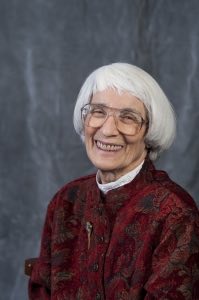
Bernice Resnick Sandler
For more than forty years, Bernice Resnick Sandler has been a tireless advocate of educational equity for women and girls. In 1970, Sandler filed the first charges of sex discrimination against 250 educational institutions. It was this strategy that led to the first federal investigations of campus sex discrimination at a time when no laws existed to prohibit discrimination based on sex in education. Subsequently, Sandler was instrumental in the development, passage and implementation of Title IX, the legislation that prohibits discrimination on the basis of sex in any federally funded education program or activity. An expert in strategies and policies to prevent and respond to sex discrimination in higher education, Sandler has given more than 2,500 presentations. She currently serves as a Senior Scholar in Residence at the Women’s Research and Education Institute in Washington, DC.
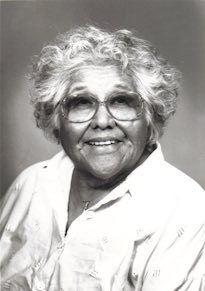
Katherine Siva Saubel
Founder of the Malki Museum at the Morongo Reservation in California. Born on a reservation in great poverty, Saubel became determined to preserve her tribe’s culture and language, despite overwhelming odds. A learned ethno anthropologist, Saubel was a founder of this first museum run by Native Americans.
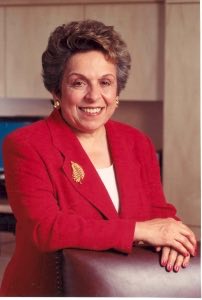
Donna E. Shalala
A groundbreaking educator and politician, Dr. Donna Shalala has more than thirty years of experience as an accomplished scholar, teacher and administrator. Dr. Shalala is recognized as the longest serving United States Secretary of Health and Human Services (1993-2001) and is the current President of the University of Miami. From 1980-1987, Dr. Shalala served as the president of Hunter College, and from 1987-1993, she was the chancellor of the University of Wisconsin-Madison. Dr. Shalala is the recipient of more than three dozen honorary degrees and was awarded the Presidential Medal of Freedom in 2008.
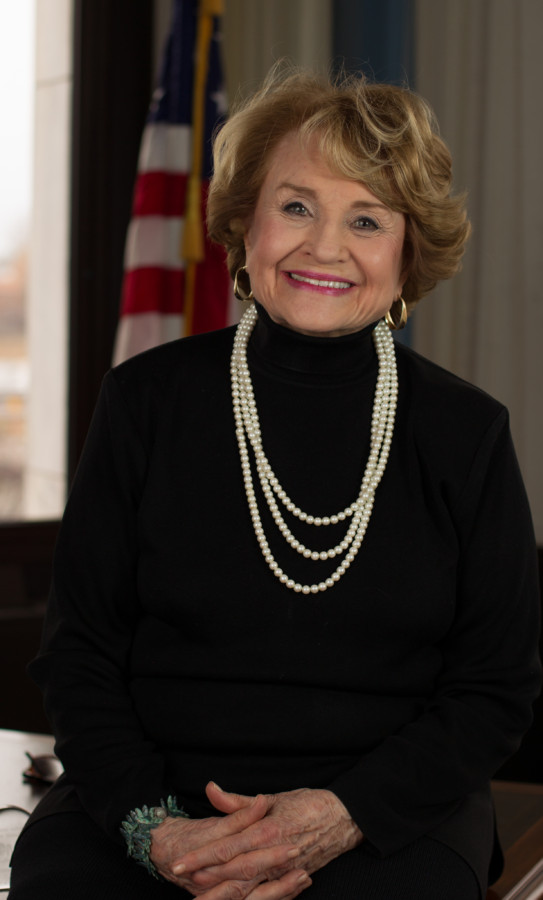
Louise Slaughter
A prominent advocate for women and POC, Louise Slaughter was a member of Congress for over 30 years. One of the longest-serving women in the House of Representatives, Slaughter was the first chairwoman of the House Rules Committee and the co-chair and founding member of the Congressional Pro-Choice Caucus, which works to promote reproductive health and protect a woman’s right to choose. Slaughter also established the Office of Research on Women’s Health and secured the first $500 million in federal funding for breast cancer research at the NIH, and she co-authored the landmark Violence Against Women Act, which has reduced cases of domestic violence by 67% since 1994. Representing upstate New York in Congress for decades, Slaughter was a scientist-turned-politician, a local and national leader whose work for women and for all Americans continues to shape our lives.
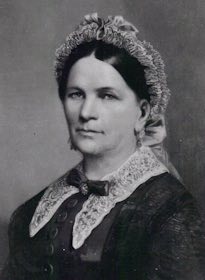
Sophia Smith
Born to a family known for its frugality and thrift, she was left at the age of 65 as the sole survivor of her immediate family, and with the funds to endow the establishment of Smith College, an institution that she hoped would provide undergraduate education for young women equal to that provided at the time for young men.
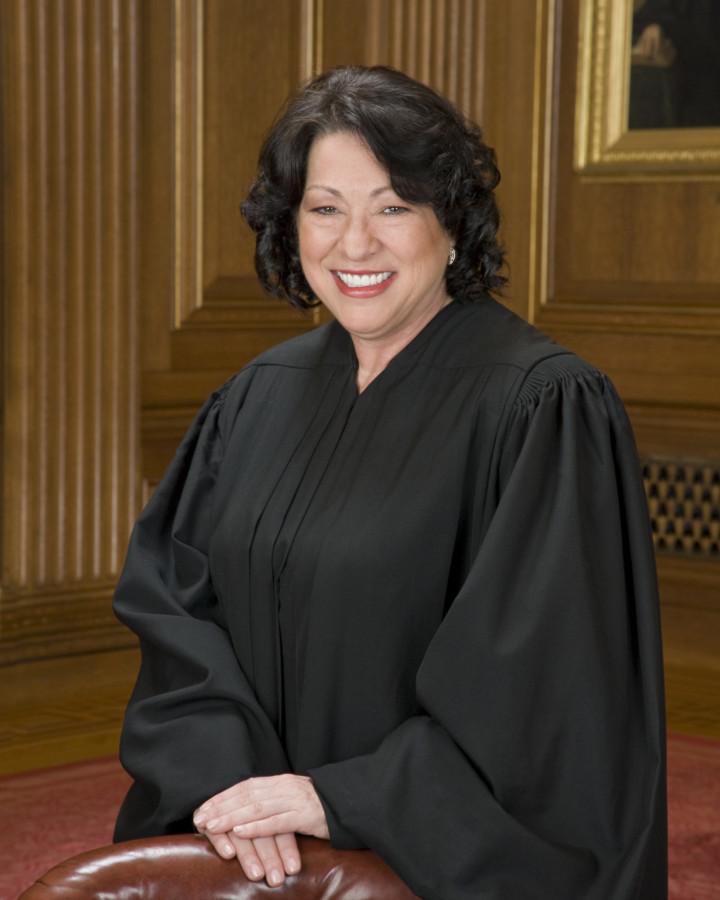
Sonia Sotomayor
Sonia Sotomayor is an Associate Justice of the Supreme Court of the United States, appointed by President Barack Obama in 2009 after leadership as an assistant district attorney, in private practice and across a distinguished judicial career. She is the third woman to be appointed to the Supreme Court and the first Hispanic and Latina Justice in the Court’s 230 years. A graduate of Princeton and Yale Law School, Sotomayor’s experiences as one of few Latinas at these institutions led her to advocate for inclusion on campuses, foreshadowing her focus on public service across her career. During her tenure on the Supreme Court, Sotomayor has been reputed for her work concerning the rights of defendants, calls for reform of the criminal justice system, and attention to issues of race, gender and ethnic identity. Justice Sotomayor is also an author, including of “My Beloved World/Mi Mundo Adorado,” “A Judge Grows in the Bronx/La juez que creció en el Bronx” and “Turning pages/Pasando Páginas.” A recipient of the Katherine Hepburn Award from Bryn Mawr College honoring women who change the world, Sotomayor has also received multiple honorary degrees, including from her alma mater Princeton University.

Bernice Resnick Sandler
For more than forty years, Bernice Resnick Sandler has been a tireless advocate of educational equity for women and girls. In 1970, Sandler filed the first charges of sex discrimination against 250 educational institutions. It was this strategy that led to the first federal investigations of campus sex discrimination at a time when no laws existed to prohibit discrimination based on sex in education. Subsequently, Sandler was instrumental in the development, passage and implementation of Title IX, the legislation that prohibits discrimination on the basis of sex in any federally funded education program or activity. An expert in strategies and policies to prevent and respond to sex discrimination in higher education, Sandler has given more than 2,500 presentations. She currently serves as a Senior Scholar in Residence at the Women’s Research and Education Institute in Washington, DC.

Katherine Siva Saubel
Founder of the Malki Museum at the Morongo Reservation in California. Born on a reservation in great poverty, Saubel became determined to preserve her tribe’s culture and language, despite overwhelming odds. A learned ethno anthropologist, Saubel was a founder of this first museum run by Native Americans.

Donna E. Shalala
A groundbreaking educator and politician, Dr. Donna Shalala has more than thirty years of experience as an accomplished scholar, teacher and administrator. Dr. Shalala is recognized as the longest serving United States Secretary of Health and Human Services (1993-2001) and is the current President of the University of Miami. From 1980-1987, Dr. Shalala served as the president of Hunter College, and from 1987-1993, she was the chancellor of the University of Wisconsin-Madison. Dr. Shalala is the recipient of more than three dozen honorary degrees and was awarded the Presidential Medal of Freedom in 2008.

Louise Slaughter
A prominent advocate for women and POC, Louise Slaughter was a member of Congress for over 30 years. One of the longest-serving women in the House of Representatives, Slaughter was the first chairwoman of the House Rules Committee and the co-chair and founding member of the Congressional Pro-Choice Caucus, which works to promote reproductive health and protect a woman’s right to choose. Slaughter also established the Office of Research on Women’s Health and secured the first $500 million in federal funding for breast cancer research at the NIH, and she co-authored the landmark Violence Against Women Act, which has reduced cases of domestic violence by 67% since 1994. Representing upstate New York in Congress for decades, Slaughter was a scientist-turned-politician, a local and national leader whose work for women and for all Americans continues to shape our lives.

Sophia Smith
Born to a family known for its frugality and thrift, she was left at the age of 65 as the sole survivor of her immediate family, and with the funds to endow the establishment of Smith College, an institution that she hoped would provide undergraduate education for young women equal to that provided at the time for young men.

Sonia Sotomayor
Sonia Sotomayor is an Associate Justice of the Supreme Court of the United States, appointed by President Barack Obama in 2009 after leadership as an assistant district attorney, in private practice and across a distinguished judicial career. She is the third woman to be appointed to the Supreme Court and the first Hispanic and Latina Justice in the Court’s 230 years. A graduate of Princeton and Yale Law School, Sotomayor’s experiences as one of few Latinas at these institutions led her to advocate for inclusion on campuses, foreshadowing her focus on public service across her career. During her tenure on the Supreme Court, Sotomayor has been reputed for her work concerning the rights of defendants, calls for reform of the criminal justice system, and attention to issues of race, gender and ethnic identity. Justice Sotomayor is also an author, including of “My Beloved World/Mi Mundo Adorado,” “A Judge Grows in the Bronx/La juez que creció en el Bronx” and “Turning pages/Pasando Páginas.” A recipient of the Katherine Hepburn Award from Bryn Mawr College honoring women who change the world, Sotomayor has also received multiple honorary degrees, including from her alma mater Princeton University.
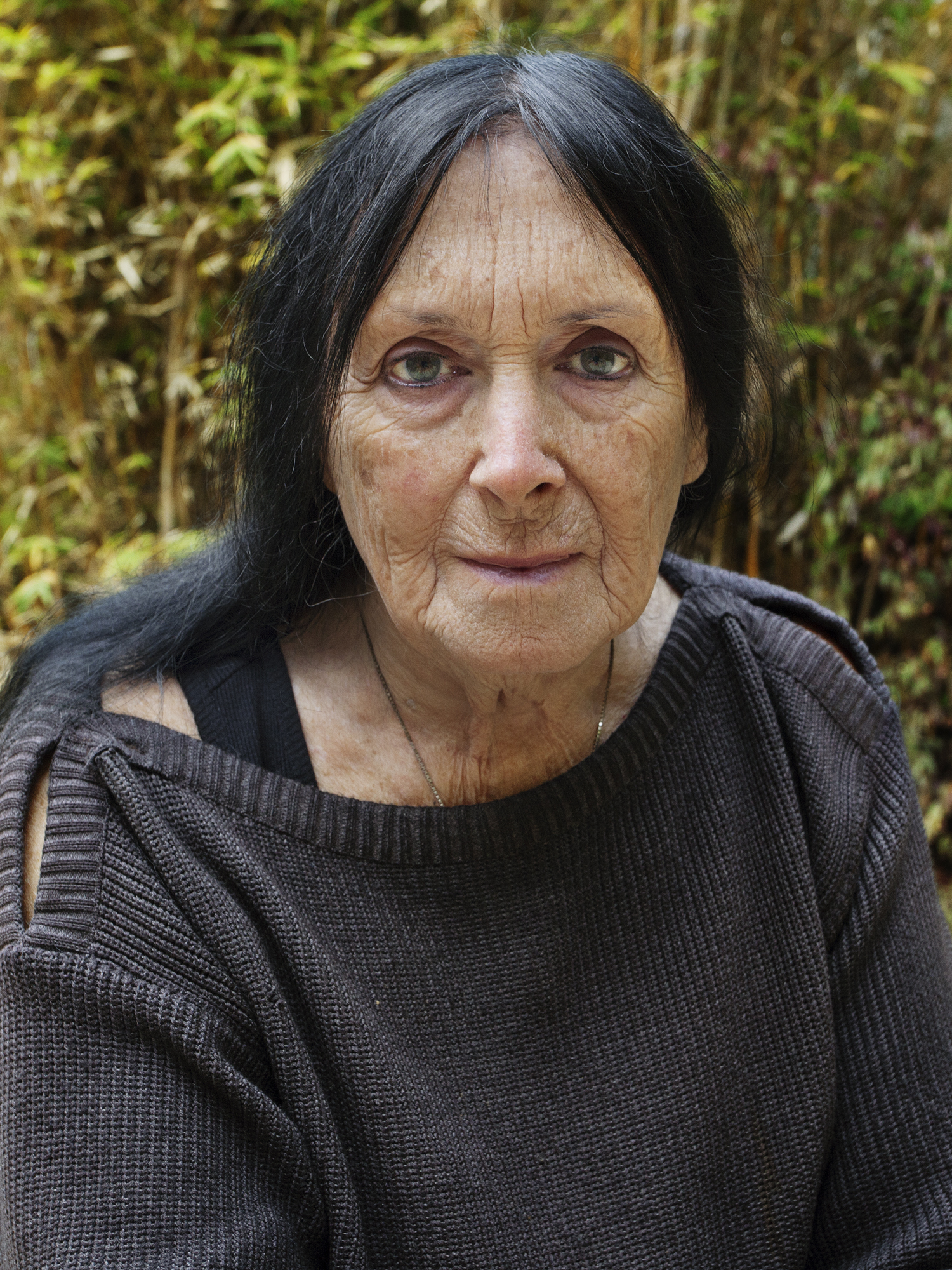
Allucquére Rosanne Stone
Allucquére Rosanne Stone, also known as Sandy Stone, is an academic, media theorist, artist, audio engineer, and computer programmer. A founder of the academic discipline of transgender studies, Stone’s trailblazing work created space for trans scholars to unfold the vast spectrum of gender.
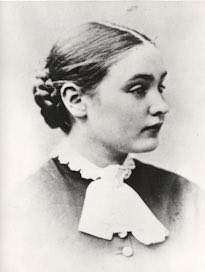
Anne Sullivan
Best known as the woman who taught Helen Keller to read, write and minimally speak, Anne Sullivan lost her own sight to trachoma at an early age. She went on to graduate from Perkins School for the Blind in Boston and eventually receive medical treatment that restored her sight. Both Sullivan and Keller became role models for thousands of physically challenged people around the world.
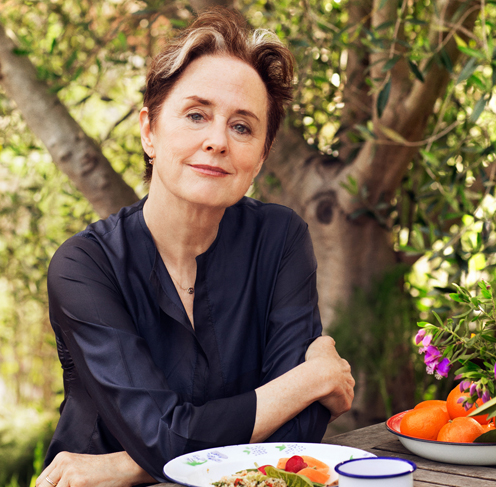
Alice Waters
A chef, author and food activist, and the founder and owner of Chez Panisse Restaurant in Berkeley, California. She has been a champion of local sustainable agriculture for over four decades, and is credited with popularizing the organic food movement.
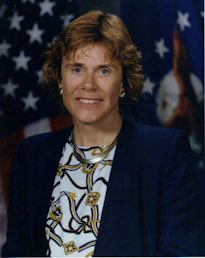
Sheila E. Widnall
Appointed Secretary of the Air Force in 1993 by President Clinton, Widnall became the first woman to hold the position. A world-renowned scientist, she holds three patents in airflow technology. As a current member of MIT faculty, she is internationally known for her work in fluid dynamics, specifically in the areas of aircraft turbulence and the spiraling air flows called vortices created by helicopters.
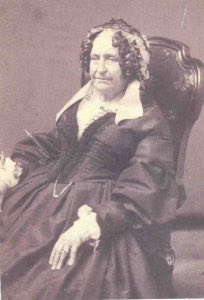
Emma Hart Willard
During her lifetime, Emma Hart Willard blazed an extraordinary trail on behalf of women’s education. A teacher by trade, Willard opened a girls’ school in her home in 1814 and was struck by the contrast between the education she could offer her women students and the education provided to men at nearby Middlebury College. She crafted A Plan for Improving Female Education, a document in which she advocated equal education for women at the academy level. In 1819, at the encouragement of Governor DeWitt Clinton, Willard opened a school in Waterford, New York which closed shortly afterward due to a lack of funding. Two years later, she founded Troy Female Seminary in Troy, New York (1821), the first school of higher learning for women. The seminary was renamed the Emma Willard School in her honor in 1895.

Allucquére Rosanne Stone
Allucquére Rosanne Stone, also known as Sandy Stone, is an academic, media theorist, artist, audio engineer, and computer programmer. A founder of the academic discipline of transgender studies, Stone’s trailblazing work created space for trans scholars to unfold the vast spectrum of gender.

Anne Sullivan
Best known as the woman who taught Helen Keller to read, write and minimally speak, Anne Sullivan lost her own sight to trachoma at an early age. She went on to graduate from Perkins School for the Blind in Boston and eventually receive medical treatment that restored her sight. Both Sullivan and Keller became role models for thousands of physically challenged people around the world.

Alice Waters
A chef, author and food activist, and the founder and owner of Chez Panisse Restaurant in Berkeley, California. She has been a champion of local sustainable agriculture for over four decades, and is credited with popularizing the organic food movement.

Sheila E. Widnall
Appointed Secretary of the Air Force in 1993 by President Clinton, Widnall became the first woman to hold the position. A world-renowned scientist, she holds three patents in airflow technology. As a current member of MIT faculty, she is internationally known for her work in fluid dynamics, specifically in the areas of aircraft turbulence and the spiraling air flows called vortices created by helicopters.

Emma Hart Willard
During her lifetime, Emma Hart Willard blazed an extraordinary trail on behalf of women’s education. A teacher by trade, Willard opened a girls’ school in her home in 1814 and was struck by the contrast between the education she could offer her women students and the education provided to men at nearby Middlebury College. She crafted A Plan for Improving Female Education, a document in which she advocated equal education for women at the academy level. In 1819, at the encouragement of Governor DeWitt Clinton, Willard opened a school in Waterford, New York which closed shortly afterward due to a lack of funding. Two years later, she founded Troy Female Seminary in Troy, New York (1821), the first school of higher learning for women. The seminary was renamed the Emma Willard School in her honor in 1895.
